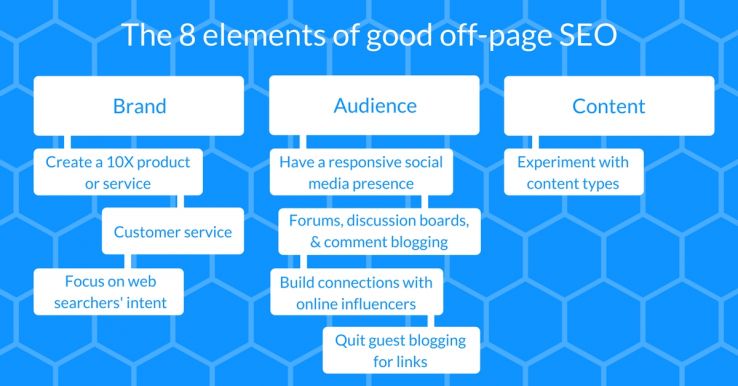Listen to your Customers!
Online Reputation Management: The New PR

Essential ORM strategies & tactics that can save your ASSets
by Kent Lewis
Generally speaking, your reputation is created and altered by what you do and what everyone, including you, says. Unfortunately, perceptions are not always based on fact, but on opinion, conjecture and rumors. Look no farther than Michael Brown, former head of FEMA, who was lambasted for the lack of government response to Hurricane Katrina. Arguably the administration fall guy, Michael Brown spent months repairing his damaged reputation through tireless interviews and appearances. OnScreen Technologies, a manufacturer of LED display systems, recently took a chance on Michael Brown and hired him to help sell its RediAlert portable signage product. An avalanche of press coverage and online buzz has since erupted, which has necessitated an online reputation management (ORM) program.

Today, there are millions of people surfing the Web for news and information about people, places and companies. If you “Google” yourself or your company today, do you like what you see? When I Google my own name or that of my company, the top 10 results include links to our blog, articles I’ve written, press coverage and conferences at which I’ve spoken. These favorable results are no accident…they are the results of a consistent search engine marketing effort including press release optimization, article syndication and related PR activities.
If you didn’t see anything too scary in the search results for your name or company, that’s certainly not a bad thing, for now at least. If you’re unsure of what a “bad” set of search results look like, try a search for “Starbucks.” You’ll see more than a few anti-Starbucks sites, including a hate site, gossip blog and local coffee shop locator. While large corporations like Starbucks, Wal-Mart, automakers and airlines are constantly targets of disenfranchised employees and customers, that doesn’t mean they shouldn’t care about how these sites are negatively impacting their brand or stock price.
It’s not a question whether or not you should be managing your reputation online, it’s a question of how. Just because you haven’t drawn fire from detractors online yet doesn’t mean it won’t happen. And when it does, you better be ready for it. Organizations and individuals alike should consider developing a search engine reputation management program as standard protocol for the 21st Century. I’ve outlined the essential elements of an effective online reputation management program below.

On-Site Elements
Implementing an effective online reputation management campaign requires a solid foundation of research and planning. In the early stages, identifying issues, key players, potential responses and content is critical. The challenge with any reputation management crisis, is effectively targeting those that need to be informed while not generating undue attention from those that don’t. The best way to accomplish this is to create targeted press releases within the News Room, that can be linked to from a variety of sources. The press release should also be optimized for relevant terms so it appears high up in related searches. Additional News Room content might include an FAQ, management bios and photos, email signup and contact information.
PR professionals should also develop a list of key media contacts to be able to rapidly distribute updates via email or RSS feeds. For time-sensitive issues, you may consider posting a link on your home page to the press release, but be careful not to promote it too heavily to site visitors that may not be aware of care about the issue.
PR professionals should also develop a list of key media contacts to be able to rapidly distribute updates via email or RSS feeds. For time-sensitive issues, you may consider posting a link on your home page to the press release, but be careful not to promote it too heavily to site visitors that may not be aware of care about the issue.
Off-site Elements
Armed with helpful content in the News Room, the next step is to define an outbound communications strategy. Knowing what to say and when to say it is challenging enough, but understanding when to keep quiet requires knowledge and experience. Traditional print and broadcast media work very differently than online media, yet the foundational communications strategies remain the same.
For starters, identify key editorial contacts at industry and business publications, ezines and portals. Add these contacts to your contact database and look for opportunities to post comments on relevant articles.

Remember that online editors can publish stories in minutes, versus days, weeks or months. When they do post coverage, they not only appear on the Web site, but that of syndicated content sites and news search engines. A majority of these sites do not have human editors, and rely on automated processes to post content. Understanding how these sites work is helpful in determining how to get your own press release and coverage into the mix.
Perhaps the most publicized arm of online media is blogs. Bloggers are increasing their profile and credibility within mainstream media and with consumers, which means their opinions carry weight. Letting them run roughshod over you or your brand can spell disaster. Be prepared to get into the conversation by posting comments on detractor blogs and linking back to your own press release or blog. Related consumer-generated media outlets include: newsgroups, threaded forums and wikis. Although not generally as high-profile as blogs, these alternative social media outlets should be monitored closely, as they too, tend to appear in relevant search engine results.
Last but not least, utilize Google AdWords and related pay-per-click programs to get your message out there. While optimized press releases and related content may take days or weeks to appear high in relevant search results, text ads are virtually instantaneous and provide total control over placement (by keyword) and message. David Rosen at Walek & Associates recently coined the phrase “MessageWords” to describe the use of AdWords to control messaging and managing reputation, and I heartily endorse this method of affordably targeting messaging.

Measuring Success
While crisis come and go, reputations last forever. Measuring the effects of a online reputation management program can be tricky, but highly rewarding. A few of the basic metrics to consider when implementing a online reputation management program include:
- Unique visitors to relevant content in the News Room
- Page views of relevant content, including press releases and FAQs
- Inquiries originating from ORM program (contact forms, emails, phone calls, etc.)
- Visibility of relevant content for targeted phrases in search engines
- New email signups or RSS feeds
- Quality and quantity of coverage in online publications
- Quality and quantity of mentions in blogs, forums and newsgroups
- Visibility of related coverage in search engines
- Quantity and quality of referring URLs (inbound links) to site or News Room content
- Text ad performance (cost-per-click, click-through-rate, etc.)
- Quality and quantity of feedback from all shareholders involved
In the end, managing your reputation requires the creation of helpful content on your own site, distribution of that content as well as strategic participation in online discussions. All combined, an integrated search engine reputation management program ensures those looking for information about you or your company will see favorable content in related search results, and your input within conversations that may not be as favorable. At the very least, you’ll be see as a thoughtful, Web-savvy Netizen. In the end, you are guaranteeing your voice will be heard, but what you say and how well it’s received is up to you. For OnScreen Technologies, ORM has been a critical component to an overall PR strategy that has resulted in a 30 percent increase in stock price since the Michael Brown hire announcement.
Watch this Informative Video to Learn More about the Need for Online Marketing
This video provides a great snapshot of the online marketing reality. The future of your business depends on the way that you market your company, services, and products. Take action today and let us help you take the next steps to improve your online presence and get more clients.